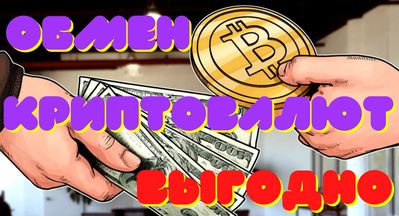Top 10 Decentralized Finance (DeFi) Facts Everyone Should Know

Decentralized finance, commonly known as DeFi, has been making waves in the world of finance, bringing innovation and disruption to the traditional financial ecosystem. As interest in DeFi continues to grow, it is essential to grasp the key facts and features that define this revolutionary financial landscape.
In this Cryptopolitan guide, we have put together 10 facts that you should know about DeFi. But before we move on to them, let’s discuss the basics.
Contents hide
1 What Is Decentralized Finance (DeFi)?
2 What are some use cases of DeFi?
3 Top 10 facts about DeFi that you should know
3.1 Bitcoin is the first DeFi
3.2 Most DeFi apps run on the Ethereum blockchain
3.3 Stablecoins are crucial for DeFi
3.4 MetaMask is the world’s most Popular DeFi Wallet
3.5 DeFi offers a range of financial services
3.6 DeFi transactions are transparent and immutable
3.7 DeFi eliminates intermediaries
3.8 Interest rates are better
3.9 DeFi has lower fees compared to traditional finance
3.10 DeFi has the potential to disrupt traditional finance
4 Benefits of Decentralized Finance (DeFi)
5 Conclusion
What Is Decentralized Finance (DeFi)?
Decentralized Finance covers the transition from traditional centralized financial systems to decentralized technologies. The DeFi ecosystem offers a variety of financial instruments and integrated protocols such as lending and borrowing platforms, stablecoins, and more.
Decentralized finance has become the most active sector in the blockchain space, offering various use cases for individuals, developers, and institutions. It operates differently from our traditional financial system, which relies on centralized infrastructure managed by central authorities, institutions, and intermediaries.
For example, the Ethereum blockchain provides a decentralized infrastructure on which financial protocols and platforms are built and launched by incorporating immutable smart contracts.
The significant advancement of DeFi is that it unlocks new possibilities for using crypto assets that were not possible with traditional assets like fiat currency. Blockchains enable unique applications such as decentralized exchanges, synthetic assets, and flash loans. This shift in financial infrastructure offers various benefits, including reduced risk, and increased trust.
What are some use cases of DeFi?
Decentralized finance (DeFi) is a revolutionary ecosystem encompassing various use cases that transform traditional finance models. Let’s look at some common real-world use cases of DeFi.
- Asset management: Users manage and control their investments on DeFi platforms without intermediaries, enabling transparent and efficient management.
- Insurance: DeFi provides decentralized insurance solutions, allowing users to secure their assets and investments against unforeseen events.
- Lending and borrowing: Users access decentralized lending and borrowing services, benefiting from lower fees, faster transactions, and borderless access.
- Margin trading: Traders leverage their assets in DeFi margin trading, enabling potentially higher returns while maintaining control over their funds.
- Marketplaces: DeFi marketplaces facilitate peer-to-peer exchange of goods, services, or digital assets without intermediaries, ensuring fair and transparent pricing.
- Payments: Users send and receive borderless, instant, and low-fee transactions on decentralized payment platforms.
- Stablecoins: Users enjoy stable value through crypto-assets pegged to stable assets like fiat currency, reducing volatility risks.
- Staking: Users earn rewards by participating in the network’s validation process, such as securing the network or confirming transactions.
- Synthetic assets: DeFi platforms issue and trade synthetic assets, replicating the value of other assets while providing exposure without ownership.
- Tokenization: Assets become easily divisible, liquid, and accessible through the process of tokenization in DeFi, broadening investment opportunities.
- Trading: DeFi trading platforms enable efficient and secure peer-to-peer asset exchange with lower fees and more accessible markets.
Top 10 facts about DeFi that you should know
Bitcoin is the first DeFi
Bitcoin laid the foundation for decentralized finance (DeFi). It introduced a decentralized, transparent, and secure digital currency that operates without central authorities or banks. This innovative approach to finance sparked a revolution in the industry offering greater financial freedom, accessibility, and opportunities to users worldwide. The Bitcoin network represents the first use case of DeFi and has set the stage for the rapid growth and expansion of DeFi applications and platforms.
Most DeFi apps run on the Ethereum blockchain
The Ethereum blockchain, launched in 2015, is the most popular platform for building and deploying DeFi applications. Its smart contract capabilities and the robust developer ecosystem enable the creation of various decentralized finance applications like decentralized exchanges (DEXs), lending and borrowing platforms, insurance protocols, and more. The versatility and adaptability of the Ethereum blockchain have made it the go-to choice for developers looking to innovate and expand the DeFi landscape. Ethereum’s flexibility, constant development, and widespread adoption have made it the leading choice for hosting DeFi projects, fostering innovation and driving the growth of the DeFi ecosystem.
Stablecoins are crucial for DeFi
Stablecoins are crucial for DeFi because they provide a stable medium of exchange and store of value in a volatile market. Since they are pegged to relatively stable assets like fiat USD, they reduce the risk of price fluctuations, enabling users to transact, invest, and participate in DeFi applications with more confidence and predictability. This stability fosters broader adoption and use of DeFi platforms, as it allows users to manage risk more effectively, facilitate transactions, and engage in various financial services like lending, borrowing, and trading without significant concern for currency volatility. Some popular examples are USDT, USDC, and BUSD.
MetaMask is the world’s most Popular DeFi Wallet
MetaMask is a crypto and DeFi wallet that serves as a gateway to the decentralized web and provides secure, user-friendly access to decentralized finance platforms. With MetaMask, users can manage their digital assets, sign transactions, and interact with smart contracts, making it an essential tool for DeFi enthusiasts. The popularity of MetaMask stems from its ease of use, compatibility with various browsers and devices, and robust security features. Its widespread adoption has made MetaMask the go-to wallet for users looking to explore and interact with DeFi applications and platforms.
DeFi offers a range of financial services
DeFi encompasses a wide array of financial services, including lending and borrowing, asset management, insurance, margin trading, marketplaces, payments, staking, synthetic assets, tokenization, and trading. By leveraging blockchain technology and smart contracts, DeFi democratizes access to financial services and empowers individuals worldwide, regardless of their socioeconomic status. These services are typically provided by traditional financial institutions, but DeFi platforms offer more accessible, efficient, and transparent alternatives that cater to a diverse range of user needs.
DeFi transactions are transparent and immutable
Blockchain technology ensures that DeFi transactions are transparent and immutable. This allows users to audit transactions and track assets, enabling a more open and accountable financial system. The immutability of blockchain records helps protect users from fraud, tampering, and other malicious activities, as it is virtually impossible to manipulate transaction data. This level of security and transparency is crucial in fostering trust among DeFi users and promoting the adoption of decentralized finance as a viable alternative to traditional financial services.
DeFi eliminates intermediaries
Decentralized finance applications operate on a peer-to-peer basis, enabling users to transact and interact directly without the need for third-party involvement. This cuts down on fees and increases efficiency, making DeFi an attractive alternative to traditional financial services. The absence of intermediaries also reduces the risk of single points of failure and improves the overall resilience of the financial system. By empowering individuals to take control of their financial affairs, DeFi contributes to a more decentralized and equitable global economy.
Interest rates are better
DeFi platforms often offer better interest rates on lending and borrowing compared to traditional financial institutions. As DeFi eliminates intermediaries, the cost savings are passed on to users, resulting in more attractive rates. This can benefit both borrowers, who can access loans at lower rates, and lenders, who can earn higher returns on their investments. These competitive interest rates are possible because DeFi platforms leverage algorithms, smart contracts, and decentralized networks to determine market rates based on supply and demand dynamics. This innovative approach to interest rate determination allows DeFi platforms to provide more favorable rates compared to traditional banking services.
DeFi has lower fees compared to traditional finance
DeFi applications usually have lower fees than their traditional counterparts, as they eliminate intermediaries and rely on efficient, automated processes. Lower fees can make financial services more accessible and appealing, especially to users in developing countries or those with limited access to traditional banking services. The cost savings associated with decentralized finance also allow for smaller transactions and microloans, enabling users to engage in various financial activities with minimal financial barriers.
DeFi has the potential to disrupt traditional finance
Decentralized finance has the potential to revolutionize the financial industry by offering more accessible, transparent, and inclusive services. As DeFi continues to grow and mature, it could potentially reshape how people manage their finances, invest, and transact. The combination of lower fees, better interest rates, increased accessibility, and reduced reliance on intermediaries makes DeFi an attractive alternative to conventional financial systems.
Benefits of Decentralized Finance (DeFi)
- Programmability: DeFi platforms leverage the programmability of smart contracts, allowing developers to create flexible and customizable financial applications. Smart contracts are self-executing agreements that run on blockchain networks and can be programmed to incorporate various financial instruments, terms, and conditions.
- Immutability: Immutability ensures that once a transaction is recorded, it cannot be altered or tampered with. This characteristic is essential in maintaining the integrity and trustworthiness of DeFi applications. Immutability not only protects users from fraud and malicious activities but also helps create a transparent and accountable financial ecosystem.
- Interoperability: Interoperability is the ability of DeFi applications to seamlessly interact and share data with other blockchain networks and protocols. This feature enables users to access a wide variety of financial services and products without being confined to a single platform or ecosystem. Interoperability fosters innovation, as developers can build upon existing platforms and create new, integrated solutions that provide enhanced functionality and user experiences.
- Transparency: Transparency is a fundamental attribute of decentralized finance that fosters trust and confidence in DeFi applications. Blockchain technology enables transparent access to transaction data, allowing users to monitor and audit financial activities in real-time.
- Permissionless: DeFi platforms are permissionless, meaning that they are open to everyone, regardless of their location, financial status, or credit history. This inclusivity makes DeFi applications accessible to a wide range of users who might not have access to traditional financial services due to geographic, economic, or regulatory barriers. restrictions.
- Self-Custody: Self-custody is a significant benefit of DeFi, as it allows users to maintain direct control over their assets and private keys. This feature eliminates the need to rely on third-party custodians such as banks, which can be subject to hacks, insolvency, or other risks.
Conclusion
The ten facts presented in this article highlight the unique features, benefits, and potential of decentralized finance (DeFi) in reshaping the financial landscape. As DeFi continues to evolve and gain traction, it is important to understand its various aspects and their implications for the future of finance. By leveraging the strengths of DeFi, we can work towards creating a more equitable, accessible, and secure financial system for all. As you explore the world of DeFi, keep these facts in mind to make informed decisions and fully appreciate the impact and potential of this innovative financial ecosystem.
Disclaimer. The information provided is not trading advice. Cryptopolitan.com holds no liability for any investments made based on the information provided on this page. We strongly recommend independent research and/or consultation with a qualified professional before making any investment decisions.







 Bitcoin
Bitcoin  Ethereum
Ethereum  Tether
Tether  Dogecoin
Dogecoin  USDC
USDC  Cardano
Cardano  TRON
TRON  Chainlink
Chainlink  Bitcoin Cash
Bitcoin Cash  LEO Token
LEO Token  Litecoin
Litecoin  Cronos
Cronos  Stellar
Stellar  Ethereum Classic
Ethereum Classic  Dai
Dai  Stacks
Stacks  Monero
Monero  Hedera
Hedera  OKB
OKB  Cosmos Hub
Cosmos Hub  Algorand
Algorand  Theta Network
Theta Network  KuCoin
KuCoin  Maker
Maker  Gate
Gate  Polygon
Polygon  EOS
EOS  NEO
NEO  Tezos
Tezos  Tether Gold
Tether Gold  Zcash
Zcash  Bitcoin Gold
Bitcoin Gold  IOTA
IOTA  Synthetix Network
Synthetix Network  TrueUSD
TrueUSD  Holo
Holo  Zilliqa
Zilliqa  Dash
Dash  0x Protocol
0x Protocol  Qtum
Qtum  Ravencoin
Ravencoin  Siacoin
Siacoin  Basic Attention
Basic Attention  Enjin Coin
Enjin Coin  Decred
Decred  Ontology
Ontology  NEM
NEM  Lisk
Lisk  Status
Status  DigiByte
DigiByte  Waves
Waves  Nano
Nano  Numeraire
Numeraire  Pax Dollar
Pax Dollar  Hive
Hive  Steem
Steem  Huobi
Huobi  BUSD
BUSD  Ren
Ren  OMG Network
OMG Network  Bitcoin Diamond
Bitcoin Diamond  Bytom
Bytom  Kyber Network Crystal Legacy
Kyber Network Crystal Legacy